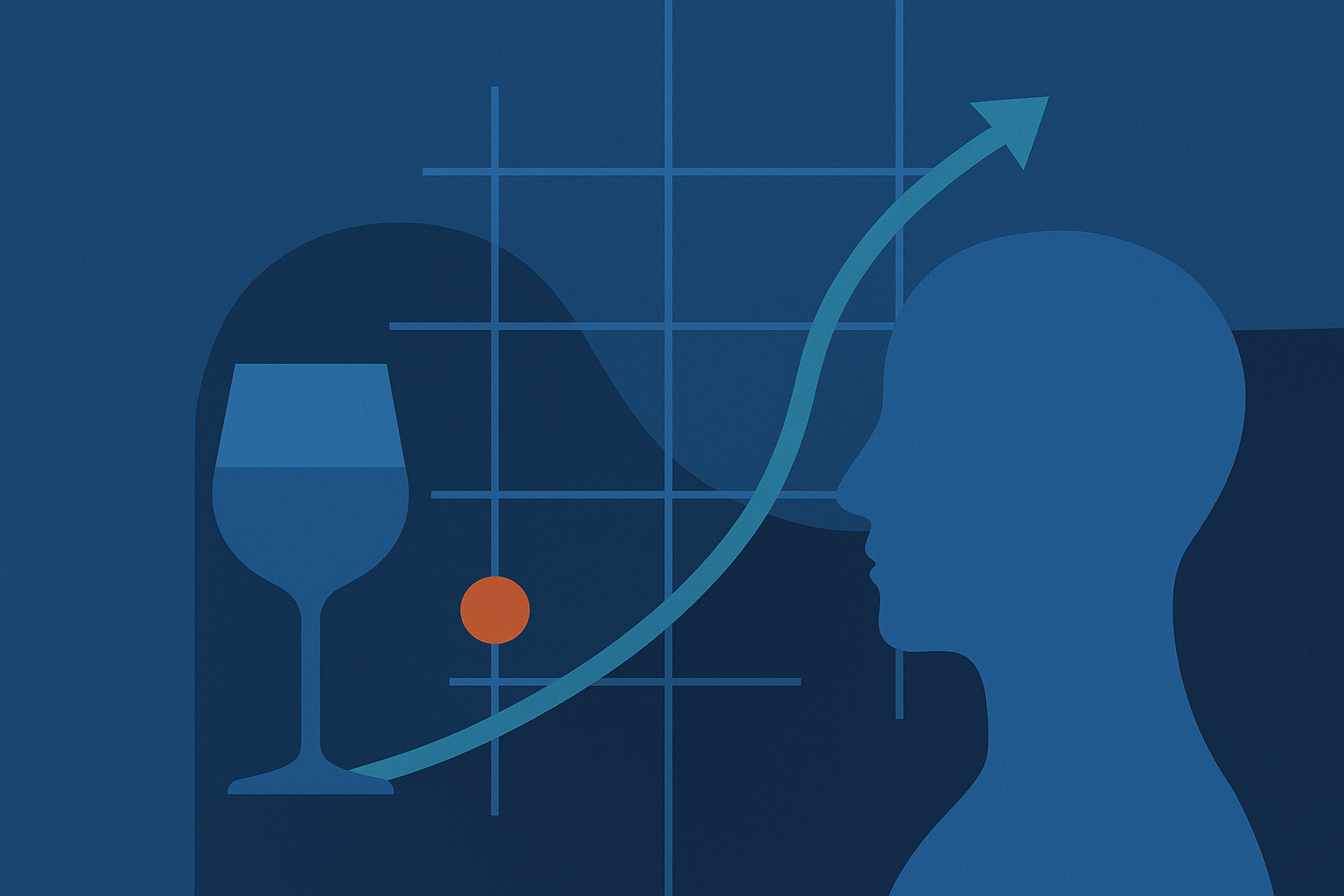Teaser
I raise a metaphorical glass to Pierre Bourdieu and ask: What would he tell us about alcohol and other forms of addiction? I read addiction through Bourdieu’s core concepts—habitus, field, capital, doxa, illusio, symbolic violence—to show how tastes, coping routines, and harms are patterned across social space rather than lodged inside isolated individuals (Bourdieu 1979; 1977/1990). Bourdieu 1979/1984; Bourdieu 1977; Bourdieu 1990. (Harvard University Press)
Why Bourdieu for addiction?
I approach addiction as practice situated in social space, not merely as pathology. Dispositions (habitus) formed by classed, gendered, and cultural trajectories meet fields—health, nightlife, advertising, policy—where different forms of capital (economic, cultural, social, symbolic) are at stake (Bourdieu 1977; 1990). Bourdieu 1977; Bourdieu 1990. (Cambridge University Press & Assessment)
Tastes of necessity, tastes of luxury
In Distinction, Bourdieu maps how tastes track positions in social space. I translate this to alcohol:
- Taste of necessity: strong, cheap, fast; pragmatic venues; collective endurance after hard work.
- Taste of luxury: moderated sipping, terroir talk, ritual pairing; venues that convert cultural capital into symbolic distinction.
Both make practical sense within their worlds; neither is “natural”—each is learned, embodied, and recognized (Bourdieu 1979). Bourdieu 1979/1984. (Harvard University Press)
Habitus, bodily hexis, and the soothing/arming of the self
The habitus predisposes bodies to tempos, thresholds, and comforts—including how much, how fast, and with whom we drink. When fields shift quickly (job loss, migration, platformized work), hysteresis can make prior dispositions misfit; alcohol or other quick regulators may become tools to re-arm the self (Bourdieu 1990). Bourdieu 1990. (Stanford University Press)
Fields that govern drinking
Addiction unfolds across interlocked fields:
- Health (diagnoses, guidelines, “compliance”)
- Commercial (branding, price promotions, algorithmic placement)
- Moral-legal (age limits, licensing, policing)
- Domestic (household roles, care burdens)
Each field sets stakes and conversion rates between capitals—e.g., money into “safe environments,” education into mindful-drinking fluency, social capital into recovery capital (Bourdieu & Wacquant 1992). Bourdieu & Wacquant 1992. (University of Chicago Press)
Masculine domination and drinking rites
Many drinking cultures function as rites of institution where toughness, loyalty, and risk tolerance are proved. Bourdieu’s analysis of masculine domination clarifies how gendered credibility is earned through embodied practice—an insight that also travels to gambling, gaming “grinds,” or stimulant use in competitive workplaces (Bourdieu 1998). Bourdieu 1998/2001. (wiley.com)
Classification struggles: who defines “problem use”?
Authorities, industries, and movements compete to name the game (vice, disease, lifestyle risk, mental health). These classification struggles decide who is counted, helped, fined, or shamed. The result is often symbolic violence—when dominated groups misrecognize unequal exposure (shift work, outlet density, poverty) as personal failure (Bourdieu 1998; 2000). Bourdieu 1998/2001. (wiley.com)
Beyond alcohol: transposing the lens
- Gambling: engineered “continuous play” converts economic capital into time on machine; illusio keeps players invested (Schüll 2012). Schüll 2012.
- Platforms/gaming: designed micro-rewards match dispositions for mastery and recognition; symbolic capital accrues as status.
- Nicotine/vapes & stimulants: quick regulation of mood/attention fits precarious schedules; costs and shame distribute unequally (Bourgois 1995; Skeggs 1997). Bourgois 1995/2003; Skeggs 1997. (Cambridge University Press & Assessment)
A mixed-methods research design I’ll use
- Multiple Correspondence Analysis (MCA) to map beverage types, contexts, and frequencies against class, gender, age, work time, housing (in Bourdieu’s Distinction tradition). Bourdieu 1979/1984. (Harvard University Press)
- Grounded Theory ethnography in three sites: night-time economy, treatment/recovery hub, platform-mediated workspace.
- Field analysis of the alcohol-policy arena (actors, capitals, doxa).
- Reflexive turn: document my positionality and how it shapes access/interpretation (Bourdieu & Wacquant 1992). Bourdieu & Wacquant 1992. (University of Chicago Press)
[HYPOTHESIS] Vignette
A warehouse picker, new to shift rotations, learns the pace and pulse of Friday “wind-downs” where strong drinks are practical—fast, cheap, collective. Months later, when schedules change again, the same habitus lags (hysteresis), and solitary spirits after late shifts begin to feel less like celebration and more like self-arming.
Literature & Links (APA)
- Bourdieu, P. (1977). Outline of a Theory of Practice. Cambridge University Press. Publisher page. (Cambridge University Press & Assessment)
- Bourdieu, P. (1979/1984). Distinction: A Social Critique of the Judgement of Taste. Harvard University Press (trans.). Publisher page. (Harvard University Press)
- Bourdieu, P. (1990). The Logic of Practice. Stanford University Press. Publisher page. (Stanford University Press)
- Bourdieu, P. (1998/2001). Masculine Domination. Polity/Wiley. Publisher page. (wiley.com)
- Bourdieu, P., & Wacquant, L. (1992). An Invitation to Reflexive Sociology. University of Chicago Press. Publisher page. (University of Chicago Press)
- Bourgois, P. (1995/2003). In Search of Respect: Selling Crack in El Barrio (2nd ed.). Cambridge University Press. Publisher page. (Cambridge University Press & Assessment)
- Schüll, N. D. (2012). Addiction by Design: Machine Gambling in Las Vegas. Princeton University Press. Author/publisher page.
- Skeggs, B. (1997). Formations of Class & Gender: Becoming Respectable. SAGE. Publisher page. (Sage Publications)
AI co-author disclosure
I use an AI co-author for outlining, synthesis, and draft polishing. I remain responsible for selection, critique, and final argument. Generative Vignetten sind als [HYPOTHESE] gekennzeichnet.
Prüfprotokoll
- Status: Enriched v2.0 (publisher links added).
- Checks: Publisher-first links verified for all core references.
- Date: 25 Oct 2025


Schreibe einen Kommentar